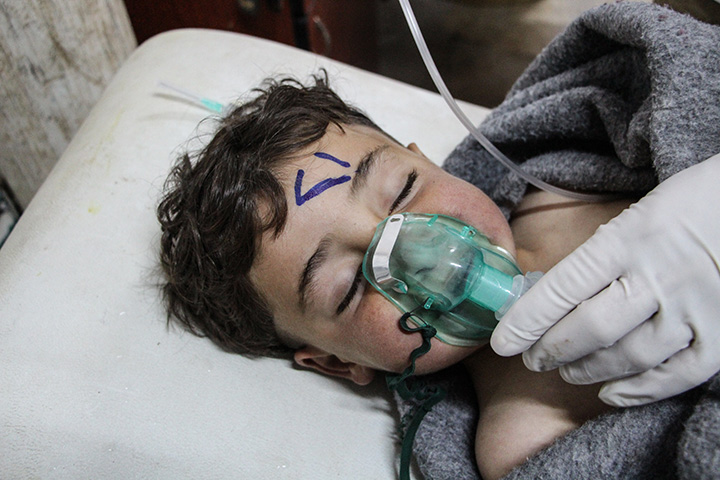In one swift move last Thursday night, U.S. President Donald Trump ended a burgeoning “bromance” with Vladimir Putin and gave Syrian President Bashar al-Assad “plenty to think about,” says one career diplomat.

The American missile strikes against a Syrian military base are having far-reaching consequences across the globe, said retired Canadian diplomat Paul Heinbecker in an interview with The West Block‘s Vassy Kapelos.
“The bromance with Putin is over. A lot of swagger has gone out of the Russian walk,” Heinbecker said.
“(And) Assad now knows that the next volley of cruise missiles could have his name on it. He’s going to have plenty to think about.”
WATCH: U.S. ‘fully justified’ in striking Syrian targets: UN Ambassador

Security analyst Anthony H. Cordesman, of the Center for Strategic and International Studies, agreed during his own conversation with Kapelos.
“At a minimum, if you look at this and you’re sitting in Assad’s chair, you’re probably not going to use chemical weapons again,” Cordesman said.
READ MORE: U.S. missile strike on Syria widely hailed by world leaders, but angers Russia
Much of what happens next will depend on the Syrian leader’s reaction, he explained. Assad will not only need to halt any further use of chemical weapons, but also show restraint in further manipulation of ceasefires or evacuations, and stop causing mass civilian causalities in barrel bombings and street fights.
“If he shows restraint, if he backs away … over time people may move away from seeing him as they probably should — as the person who has directed and caused most of the casualties in this civil war,” Cordesman said.
With America’s actions now come expectations, Heinbecker noted, especially from the rebel factions in Syria fighting Assad.
“They might yet be disappointed,” he said. “I’m not sure that the Americans want to go any further.”
A diplomatic solution?
The scene now shifts to diplomacy and more specifically to the United Nations, both experts agreed, and Canada may or may not have much of a role to play in that respect.
“It’s not easy for Canada to insert itself into that because we don’t have a seat currently on the (United Nations) Security Council,” Heinbecker explained.
“It’s a little ironic that President Trump would be our moral standard-bearer on this particular issue, but he is the one who acted in response to the atrocity perpetrated by the Syrians.”
Without the continuing threat of military action from the U.S, he added, there can be no diplomatic solution.
But according to Cordesman, Russia (an ally of Assad) could step in at the UN and turn the entire affair into a “debating society.” If the UN simply spins its wheels on Syria, that won’t put the needed pressure on Assad.
“We may find ourselves in a case where president Trump is almost forced to keep acting, in effect to escalate in response, because you simply can’t let this level of civilian suffering go on indefinitely.”
If military intervention does continue and a military coalition is formed, he said, Canada could again be called upon to help.
“Canada has provided important help both in Iraq and in Afghanistan,” recalled Cordesman.
“I think Canada has more than pulled its weight in dealing with these crisis … So are alliances important? The answer is yes. Extremely.”
Watch the full interview with Paul Heinbecker above, and the full interview with Anthony H. Cordesman below:




Comments